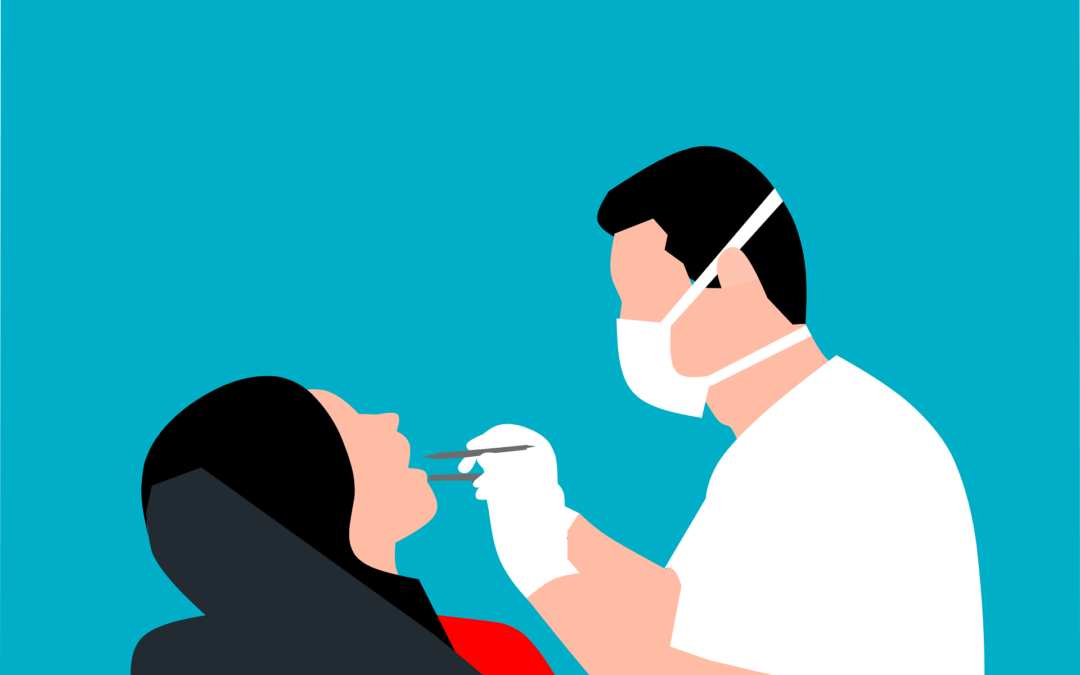
by Rick Davis | Nov 28, 2023 | Blood Cancers, Brain Tumors, Cancer Caregivers, Cancer Resources, Health Resources, mCRPC, Men's Breast Cancer, mHSPC, Multiple Sclerosis, Pancreatic Cancer, Prostate Cancer, Recent News, RMC, Thyroid Cancer, Women's Breast Cancer
Your Dental Health
 AnCan takes a holistic approach to your physical and mental health. AnCan also recognizes that a healthy mouth contributes to a stress free life… and all too often your condition, or the meds you take for it, can disrupt dental health. Some of our groups speak frequently about dry mouth (xerostomia), loss of taste (ageusia) and ONJ … osteonecrosis of the jaw.
AnCan takes a holistic approach to your physical and mental health. AnCan also recognizes that a healthy mouth contributes to a stress free life… and all too often your condition, or the meds you take for it, can disrupt dental health. Some of our groups speak frequently about dry mouth (xerostomia), loss of taste (ageusia) and ONJ … osteonecrosis of the jaw.
When, Dr. Bob Gurmankin DMD, a recently retired dentist living with advanced prostate cancer, noticed the frequency with which these dental topics came up in his group, he suggested a two-step support program – 1) a handout on our website, and 2) a dental health webinar in 2024… watch out for this int he New Year.
One handout alone was not going serve all needs so Dr. Bob graciously prepared THREE to kick start our effort to help you maintain a healthy mouth.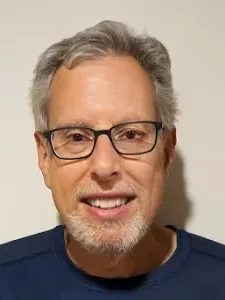
Please download whatever is appropriate and spread the word to others who you think may benefit. Dr. Bob Gurmankin can be reached at dr.bob@ancan.org ; if you have questions he has kindly agreed to assist… THANK YOU DR. BOB!!!
Please participate in our Groups where you’ll find more support… onward & upwards.
Other Resources
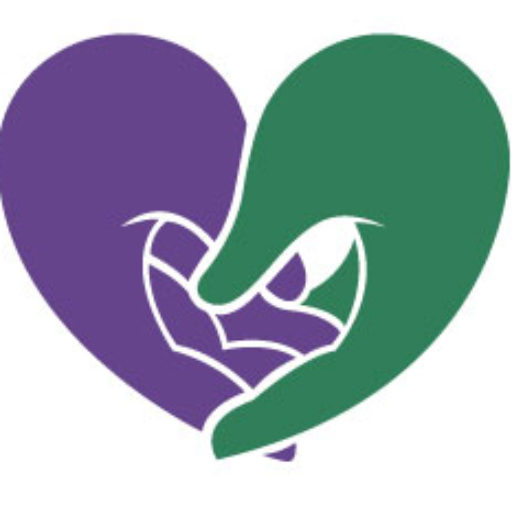
by Rick Davis | May 22, 2023 | Active Surveillance PCa, Advocacy, Blood Cancers, Brain Tumors, Cancer Caregivers, Cancer Resources, Health Resources, hospice and palliative, mCRPC, Men's Breast Cancer, mHSPC, Multiple Sclerosis, nmCRPC, Ovarian Cancer, Pancreatic Cancer, Prostate Cancer, Recent News, RMC, Sarcoidosis, Thyroid Cancer, Women's Breast Cancer
ICE Checklist … in case you go cold!
Last month’s Under 60 Stage 3 & 4 Prostate Cancer meeting was small, intimate and produced a true gem from Down Under to benefit all AnCan’rs …
For the life of me, I forget what raised the topic … maybe a Death with Dignity discussion – but Aussie AnCan’r, Steve Cavill told us about the ICE “In Case of Emergency” Checklist Document that he and his wife Leonie, who occasionally attends our Care Partners Group, have both completed. Steve and Leonie reside in the suburbs of Melbourne and are currently heading towards mid-Winter.
This ICE Checklist takes much, if not all, the difficulty out of placing your key information in one place. Like your vital passwords to your laptop, phone or bank accounts; names of key individuals in your life and more. You know .. all that information making it possible for someone to piece your life together if you’re suddenly no longer with us.
Frankly it’s information we should all compile no matter how old. With this checklist guide at hand to march us through it, there can be few excuses. Just remember, this version of the ICE checklist was created in Oz, so it may not be fully applicable Stateside. If one of our US volunteers has time to ‘Americanize’ it, I feel sure it will be greatly appreciated – we have very few solicitors in the US and a few too many attorneys!
Here’s the checklist document in Word format ICE Document Template Now do your part …. and a BIG THANK YOU, Steve Cavill!!
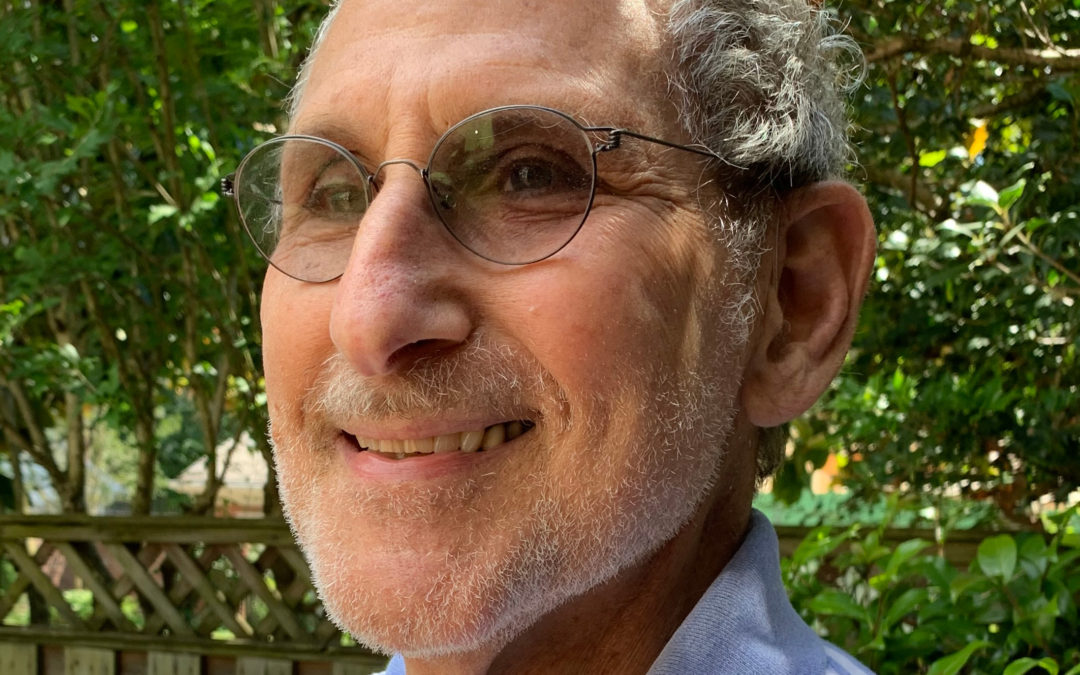
by Rick Davis | Apr 16, 2023 | Active Surveillance PCa, Art, Blood Cancers, Cancer Caregivers, Cancer Resources, mCRPC, Men 'Speaking Freely', mHSPC, nmCRPC, Pancreatic Cancer, Prostate Cancer, Recent News, RMC, SOH, Solo Arts Heal, Thyroid Cancer, Volunteers
Herbert (‘Herb’) Miles Geller, PhD 1945-2023
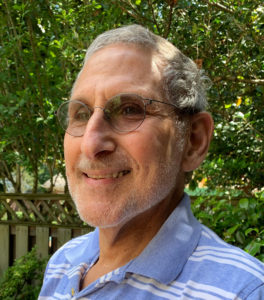
1948-2023
I am writing with a very heavy heart to report the death of our dear Board Member, Advisory Board Member, Moderator, Participant and my good buddy, Herb Geller PhD G-d Rest His Soul.
The loss of dear Herb z”l is already reverberating around AnCan and will undoubtedly amplify as more learn of his demise. Herb touched many well beyond his Advanced Prostate Cancer ‘Brains Trust’, Moderators, Peers and Participants. The Blood Cancer group got to know him well when he attended regularly on behalf of his brother. The Pancreatic Cancer folks met him when he showed up for his next door neighbor. Our Men Speaking Freely Group loved and respected him for sharing his fears and concerns. Members of our Advisory Board got to interact with Herb as did Medical Academics and others who participated in AnCan’s research projects.
Here are a few of the words I already see bandied around –
- “kind, smart, caring, thoughtful”
- “My heart is heavy and I’m at a loss for words. There is something I’m feeling that I can’t express sufficiently”
- “this is the deepest hurt since we lost Dominic (2015)”
- “Thanks to each of you for your loving support of him and all of us for each other.”
Herb passed away from advanced prostate cancer that had evidently morphed into small cell/neuroendocrine like (NEC) disease. A late diagnosis just one day before he entered the NIH, his place of work, identified this. Herb was scheduled to undergo tests for his highly elevated endocrine markers, however the source was now evident on admission. The NIH never appeared to acknowledge or treat him for this diagnosis. It finally added a neuroendocrine oncologist to Herb’s team after 21 days after repeated AnCan prodding from the date of admission. Herb underwent research procedures related to Cushing’s Disease and its symptoms. In due course, AnCan will follow up as appropriate.
Never one to give up the opportunity to sail anything from a small dinghy to an ocean-going yacht, Dr. Herb Geller was a nationally recognized expert in neuro-biology; a profile is available on the NIH site. Herbie loved a a good Scotch, in Skye or anywhere else. On his request, AnCan did its best to sneak in a wee dram just to wet his lip in the final days but the ‘powers that be’ prevented us. I’ll have one for you tonight, Herb! And, we’ll make sure both your AnCan posters get written up for submission with credit to you.
Herb is survived by his wife of 55 years, Nancy, Director of the Office of Biostatistics for the National Heart, Lung and Blood Institute at the NIH. Also his younger brother, Ken, an eminent Supreme Court Advocate kennethsgeller@gmail.com. We wish Herb’s family and many friends, especially his “AnCan Family”, much comfort. May Herb’s memory always be a blessing – it certainly will be here at AnCan.
For our Jewish readers, Herb’s z”l Hebrew name is Chanan Moshe ben Aaron v’Sara; he died on 25th Nisan.
O&U, rd
Herbert Geller Obituary (2023) – Washington, DC – The Washington Post
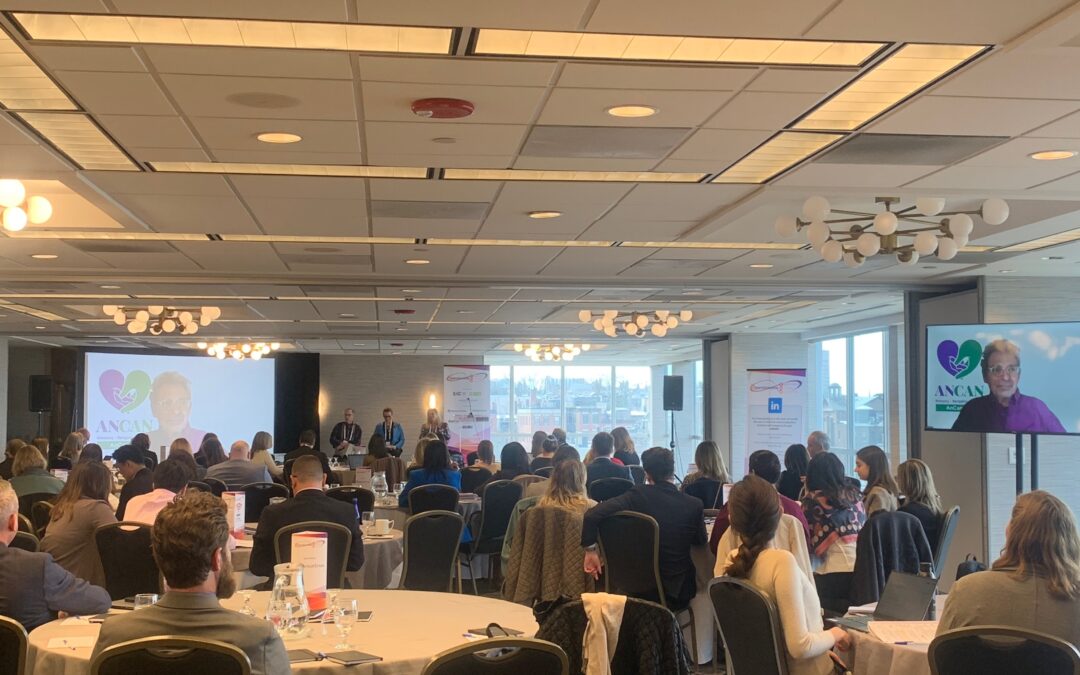
by Rick Davis | Mar 29, 2023 | Advocacy, Blood Cancers, Brain Tumors, Cancer Caregivers, Cancer Resources, mCRPC, Men's Breast Cancer, Ovarian Cancer, Pancreatic Cancer, Prostate Cancer, Recent News, RMC, Sarcoidosis, Thyroid Cancer, Women's Breast Cancer
AnCan VIRTUALLY speaks to Extended Access Programs!
When AnCan Advisory Board Member, Jeff Waldron asked us to participate in a pharmaceutical industry Conference on Expanded Access Programs (EAP) in Boston at the end of March, we were only to happy to amplify the patient voice.
A couple of background factors. For those of you not aware, EAP is the name given to programs that allow needy patients access to groundbreaking drugs that have not yet received regulatory approval – in the US case, by the FDA. All of our guys who received Pluvicto (Lu177 PSMA 617) through ‘Managed Access’ last year were actually enrolled in a form of EAP. As you may recall, when the FDA approved Pluvicto, the Managed Access Program ceased to exist and patients were rapidly transferred to commercial providers.
Our good friend, Jeff Waldron, has a back ground working with both Payers and Pharma. He is one of our most well-connected Advisors, and for the past 3 years, has organized an international EAP Conference. All but the smallest pharmas have an EAP. The past two years conferences were virtual, but this year it was held live in Boston from March 21-23.
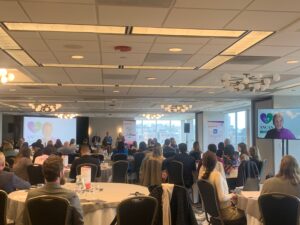 Rick Davis attended virtually on behalf of AnCan to participate in a panel moderated by Jeff entitled,“Closing the Gap of How We Reach Patients”. Ours was the sole direct patient particpation in the 2-day proceedings, and one thing was for sure – they couldn’t miss ‘rd’ as you’ll see from the photgraph alongside. Live feedback was very positive, especially from hearing the difficulties patients encounter. Perhaps the single exception.was a senior drug executive from a pharma with whom AnCan works closely. She presented for 25 minutes immediately before the Panel, finally mentioning patients in her closing sentence. When Rick pointed that out, she was none too pleased.
Rick Davis attended virtually on behalf of AnCan to participate in a panel moderated by Jeff entitled,“Closing the Gap of How We Reach Patients”. Ours was the sole direct patient particpation in the 2-day proceedings, and one thing was for sure – they couldn’t miss ‘rd’ as you’ll see from the photgraph alongside. Live feedback was very positive, especially from hearing the difficulties patients encounter. Perhaps the single exception.was a senior drug executive from a pharma with whom AnCan works closely. She presented for 25 minutes immediately before the Panel, finally mentioning patients in her closing sentence. When Rick pointed that out, she was none too pleased.
So what did we say. The take- away points for pharma were:
- Publcize your EAP in a way that is understandable and accessible to and for patients
- Provide support to the patients’ medical team filling out the paperwork to help eliminate that as a hurdle to access
- Respond quickly so patients are not hanging out waiting to hear if they can access the EAP drug
- Be sure trialled drugs are available to patients benefitting from their use, if the trial is stopped and the drug has not been approved.
AnCan’rs – just another example of how we ensure your voice is being heard … we have your back!
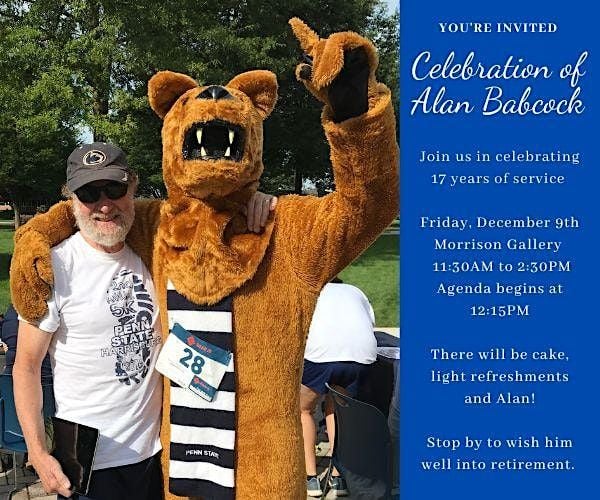
by Rick Davis | Dec 21, 2022 | Cancer Caregivers, Cancer Resources, nmCRPC, Ovarian Cancer, Pancreatic Cancer, Prostate Cancer, Recent News, RMC, Thyroid Cancer
Cancer Can Be a Glass Half Full!
Some of our Blog readers, have attended AnCan’s Speaking Freely virtual group. That’s our men-only meeting that talks about everything and anything EXCEPT treatment. It’s open to all men living with a chronic condition and provides a great opportunity twice a month to get things off your chest and to air issues where another perspective may help. Like all our meetings, it’s free and drop in on the 1st and 3rd Thursday of each month starting at 8.00 pm Eastern in our AnCan Barniskis Room.
 December’s second meeting of the month hosted a newbie to Speaking Freely but not to our AnCan Groups. Alan Babcock has been attending our prostate cancer groups for a while; he was finally able to vacate his schedule to make a Speaking Freely group. Alan recently retired from a hugely meaningful and rewarding career where he supervised Disability Services for students at Penn State – Go Nittany Lions!! Over the years, his team enabled thousands of disabled students to graduate .
December’s second meeting of the month hosted a newbie to Speaking Freely but not to our AnCan Groups. Alan Babcock has been attending our prostate cancer groups for a while; he was finally able to vacate his schedule to make a Speaking Freely group. Alan recently retired from a hugely meaningful and rewarding career where he supervised Disability Services for students at Penn State – Go Nittany Lions!! Over the years, his team enabled thousands of disabled students to graduate .
In the course of the SF group conversation, we spoke about how cancer has impacted our lives – positively and negatively. When Alan mentioned he’d be keeping track of all the gifts received from his prostate cancer experience, we immediately asked for a copy – and here it is.Thanks for sharing your vulnerabilities, Alan and for allowing others to learn and benefit! (Editor: We’ve chosen to put Prostate in parenthesis, because for the large part, we think this applies to most all cancers!! )
Gifts of (Prostate) Cancer
1. I experienced a flood of love and good wishes from family, friends, and colleagues.
2. I returned to therapy, and I deepened my self-understanding.
3. I had the opportunity to confront my mortality, which taught me to think about decisions I make day-to-day.
4. I saw my wife do battle with the medical establishment on my behalf and win.
5. My love for my wife deepened as we confronted a life crisis.
6. I watch myself travel from despair to acceptance. Once again, demonstrating my resilience to myself.
7. I was given the opportunity to learn how to love my wife in new ways.
8. For about the hundreth time, I saw my wife was a tower of strength, and I learned once again that she would always be there for me.
9. I felt my wife’s unconditional love as she held me while I cried for all of my losses.
10. I experienced what it was like to have somebody pray for me.
11. I took control of my well-being by firing my first urologist and finding better care elsewhere, which was empowering.
12. I talked to other men who had prostatectomies about highly personal subjects.
13. I started to learn how to engage in Mindfulness rather than just talking about it.
14. I experienced a high school friend showing how much he cared by not only investigating where I received treatment, but also the physician who was going to perform the prostatectomy.
15. My brother-in-law showed how much he cared by arranging a consultation with a physician at the Dana-Farber Cancer Center.
16. A professor, who I did not know well, gave me her telephone number, and told me to call any time day or night.
17. I learned what was helpful and what was unhelpful when someone was facing a life crisis.
18. I joined a support group, in which I learn much about prostate cancer and in which I receive support.
19. I am learning to accept my limitations.
20. I have helped other men, which has been rewarding
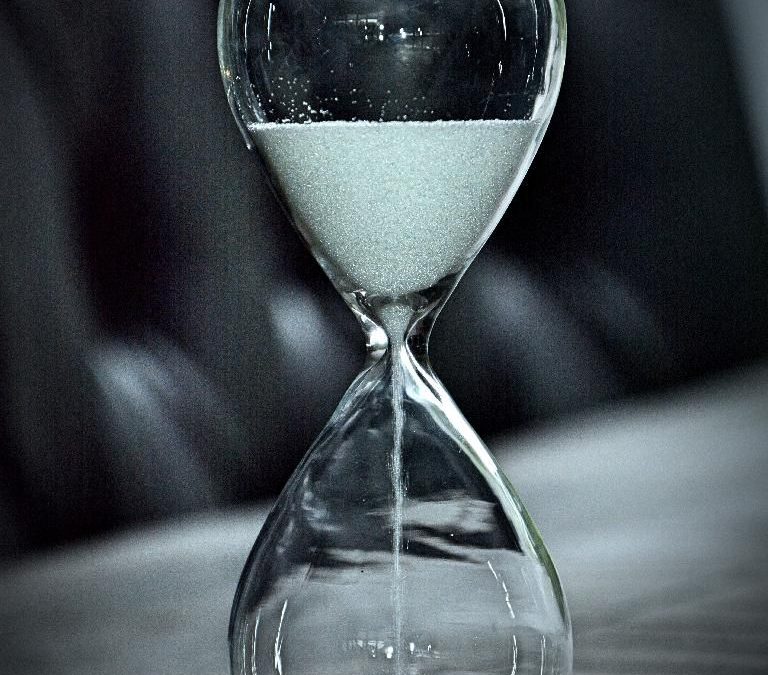
by Rick Davis | Apr 21, 2022 | Advocacy, Blood Cancers, Brain Tumors, Cancer Caregivers, Cancer Resources, mCRPC, Men 'Speaking Freely', Men's Breast Cancer, Multiple Sclerosis, nmCRPC, Ovarian Cancer, Prostate Cancer, Recent News, Sarcoidosis, Thyroid Cancer, Women's Breast Cancer
Time Toxicity raises thoughts …
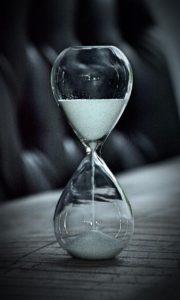 Some may have read the excellent ediorial written by Moderator Ben Nathanson in a recent High Risk/Recurrent/Advanced Prostate Cancer Reminder. Ben explains ‘time toxicity’ … a concept that effects many living with serious disease. If you missed his musings, here they are again:
Some may have read the excellent ediorial written by Moderator Ben Nathanson in a recent High Risk/Recurrent/Advanced Prostate Cancer Reminder. Ben explains ‘time toxicity’ … a concept that effects many living with serious disease. If you missed his musings, here they are again:
Treatment that gives us time to live demands time in return. It drags with it scans, blood work, drives to the hospital, doctors running late, computers down, battles with insurance. Part of our gained lifetime is lost in dead time.
Toxicity is always in the cancer mix. Financial toxicity has become part of the conversation alongside physiological toxicity, and time toxicity — time lost in an effort to gain time — is joining it.
In a thoughtful 2018 essay, physician Karen Daily notes “Much of our patients’ time investments remain invisible to clinicians.” This year, in ASCO’s lead journal, three physicians have taken up the challenge, proposing that clinical trials, when reporting overall survival, distinguish between “Days with Physical Health Care System Contact” and days the patients actually own — “Home Days.” This a new idea only in cancer, say the authors — cardiology and other fields already make these kinds of measurements.
When medicine’s best offer is a handful of months, we face difficult choices. Time toxicity casts a shadow over both survival time and quality of life. As we try to balance days added against side effects, it would be good to know how much of the time we’re gaining will be ours to spend.
Reading Ben’s thoughts prompted one of our regular participants to write a reply to us both that touched me to the core. I asked if we could reprint that too, and was graciously given permission on condition of anonymity. Here it is!
Ben, thanks for the article on “time toxicity” in the (recent) meeting announcement. It identifies an important consideration for all to think about in the fight vs. cancer and from my personal experience an impact that changes over time. Your write-up got me to thinking and pushed me to a holistic realization that this is basically an investment decision with expected returns.
For the prostate component of my cancer fight (now 17 years and counting), I did not think about the time investment in the first 14 years that I (and family members) were making to “do battle” (eg lab work, appointments with doctors, scans, treatments, family meetings, insurance challenges and personal downtime / reduced effectiveness in work due to treatment, etc.), It was a “no-brainer” decision and I never considered the tradeoff as the benefits for the opportunity to “continue to live life” due to treatments as my “life” returns were overwhelmingly positive vs.the “investment” required to do battle.
Having retired three years ago and simultaneously entering a new phase of my cancer fight I am aware of the increased time I (and family members) now spend on cancer treatment yet obtaining reduced time for life (and quality of life). I’m now spending significantly more time at Doctors appointments, treatments and longer periods of time post treatment feeling the physical effects of treatment and have begun to recognize I’m going to hit a point where this equation gets out of balance….and I’m not equipped with a decision model to manage that occurrence. Given my personal nature is to grind on stuff (I can make it work, give me time and let me try!) — I’m likely to blow right past the point of equilibrium where time toxicity and balance of life toxicity begin to get out of hand. For much of the first 14 years of my cancer fight I practiced a very large (and for me, healthy) dose of self-denial that I was dealing with prostate cancer. I was able to keep the cancer part of my life cordoned off, did not have significant residual time spent thinking / worrying / etc. about the disease and lived life to the max both personally and professionally. Now, in the last three years I am finding growing quantities of “thinking time” consumed by the disease and also sucking family members…. wife and children….deeper into the cancer battle as discussions / time encroach on them as well increasing the cost of investment (time) in the battle vs. cancer.
Prostate cancer is my second cancer fight, Ten years prior to the prostate cancer diagnosis I was diagnosed with a rare leukemia (rare as it was diagnosed in a limited number of folks (~2,000 / per year in the United States) and was usually fatal shortly after diagnosis as there were no lasting treatments until about 4 years prior to my diagnosis. As a freak outcome of scientific research a drug treatment was developed; the drug was intended for another cancer that had a much larger annual incidence of new cases; the drug was not effective on the targeted cancer but it was very effective on the rare leukemia. And at the time the treatment protocol was 7 days of continuous drip via a small pump one wore around the waist as an outpatient; minimal side effects; and if the first treatment didn’t work a second round was almost guaranteed to work. Talk about lucky! There was no way research funds would have been spent on this cure except by accident — which was exactly the case. The time toxicity for me in my first cancer battle was non-existent and I believe has indirectly helped me in the prostate cancer fight by giving me a dose of optimism and coping skills.
I think the topics raised by both of you….including Rick’s statement on treatment longevity results are important for the group to consider. These are relevant points of management in the cancer battle that I haven’t seen addressed by my oncologists (except one) nor psychologists and psychiatrists that I’ve also used in my treatment.
Editor’s Comment: In the original Reminder, I responded to Ben’s comments by adding one of my own. I pointed out that frequently Overall Survival benefits were shorter than might be expected because trials are often run on patients at a very late stage of their disease. This caveat should be considerd when we see the FDA reporting short life extension, sometimes as few as 2 or 3 months, for newly approved drugs.(rd)

 AnCan takes a holistic approach to your physical and mental health. AnCan also recognizes that a healthy mouth contributes to a stress free life… and all too often your condition, or the meds you take for it, can disrupt dental health. Some of our groups speak frequently about dry mouth (xerostomia), loss of taste (ageusia) and ONJ … osteonecrosis of the jaw.
AnCan takes a holistic approach to your physical and mental health. AnCan also recognizes that a healthy mouth contributes to a stress free life… and all too often your condition, or the meds you take for it, can disrupt dental health. Some of our groups speak frequently about dry mouth (xerostomia), loss of taste (ageusia) and ONJ … osteonecrosis of the jaw.




 Rick Davis attended virtually on behalf of AnCan to participate in a panel moderated by Jeff entitled,“Closing the Gap of How We Reach Patients”. Ours was the sole direct patient particpation in the 2-day proceedings, and one thing was for sure – they couldn’t miss ‘rd’ as you’ll see from the photgraph alongside. Live feedback was very positive, especially from hearing the difficulties patients encounter. Perhaps the single exception.was a senior drug executive from a pharma with whom AnCan works closely. She presented for 25 minutes immediately before the Panel, finally mentioning patients in her closing sentence. When Rick pointed that out, she was none too pleased.
Rick Davis attended virtually on behalf of AnCan to participate in a panel moderated by Jeff entitled,“Closing the Gap of How We Reach Patients”. Ours was the sole direct patient particpation in the 2-day proceedings, and one thing was for sure – they couldn’t miss ‘rd’ as you’ll see from the photgraph alongside. Live feedback was very positive, especially from hearing the difficulties patients encounter. Perhaps the single exception.was a senior drug executive from a pharma with whom AnCan works closely. She presented for 25 minutes immediately before the Panel, finally mentioning patients in her closing sentence. When Rick pointed that out, she was none too pleased.
 December’s second meeting of the month hosted a newbie to Speaking Freely but not to our AnCan Groups. Alan Babcock has been attending our prostate cancer groups for a while; he was finally able to vacate his schedule to make a Speaking Freely group. Alan recently retired from a hugely meaningful and rewarding career where he supervised Disability Services for students at Penn State – Go Nittany Lions!! Over the years, his team enabled thousands of disabled students to graduate .
December’s second meeting of the month hosted a newbie to Speaking Freely but not to our AnCan Groups. Alan Babcock has been attending our prostate cancer groups for a while; he was finally able to vacate his schedule to make a Speaking Freely group. Alan recently retired from a hugely meaningful and rewarding career where he supervised Disability Services for students at Penn State – Go Nittany Lions!! Over the years, his team enabled thousands of disabled students to graduate .
 Some may have read the excellent ediorial written by
Some may have read the excellent ediorial written by